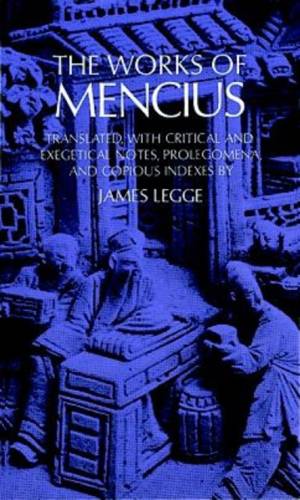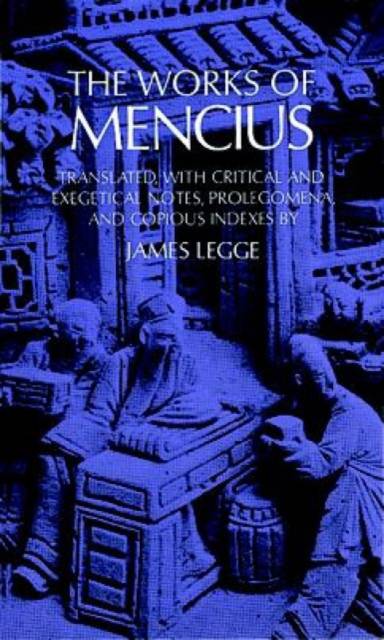
Je cadeautjes zeker op tijd in huis hebben voor de feestdagen? Kom langs in onze winkels en vind het perfecte geschenk!
- Afhalen na 1 uur in een winkel met voorraad
- Gratis thuislevering in België vanaf € 30
- Ruim aanbod met 7 miljoen producten
Je cadeautjes zeker op tijd in huis hebben voor de feestdagen? Kom langs in onze winkels en vind het perfecte geschenk!
- Afhalen na 1 uur in een winkel met voorraad
- Gratis thuislevering in België vanaf € 30
- Ruim aanbod met 7 miljoen producten
Zoeken
Omschrijving
Second only to Confucius in the main stream of Chinese philosophic thought stands the philosopher Mencius (c. 372-289 B.C.). Born into troubled times, when China was politically fractured and socially and economically chaotic, Mencius vigorously proposed the doctrines of Confucius as the solution of China's problems. He remained throughout his life, however, a man "with a mission but no position," and it was for later centuries to recognize both his brilliance within the tradition and his great original contribution to social thought. Until very modern times he has been regarded as China's Second Master.
This edition of Mencius' works contains the complete texts of his writings in Chinese, printed in large, clear characters. It also contains the revised version of the English translation prepared by the great Sinologist James Legge.
There is a wealth of critical and scholarly material for both the beginner and advanced student: a long historical introduction, providing both cultural and philosophical background; many quotations from Confucianist and anti-Confucianist writers, annotations for difficult sections, and many other useful features. It is the fullest edition of Mencius ever prepared in English, indispensable for any Sinologist who wants an accurate text, for the philosophy student, and even for the layman who wishes to meet the remarkably clear profundities of Mencius' thought.
Today the thought of Mencius is of importance beyond its circumstances of origin. Mencius proposed a humanitarian, common-sense philosophy which, paradoxically, stressed the rights of the individual against the state. Mencius created a sensation when he declared that unjust rulers could be deposed, and challenged the evil result of misused power.
This edition of Mencius' works contains the complete texts of his writings in Chinese, printed in large, clear characters. It also contains the revised version of the English translation prepared by the great Sinologist James Legge.
There is a wealth of critical and scholarly material for both the beginner and advanced student: a long historical introduction, providing both cultural and philosophical background; many quotations from Confucianist and anti-Confucianist writers, annotations for difficult sections, and many other useful features. It is the fullest edition of Mencius ever prepared in English, indispensable for any Sinologist who wants an accurate text, for the philosophy student, and even for the layman who wishes to meet the remarkably clear profundities of Mencius' thought.
Today the thought of Mencius is of importance beyond its circumstances of origin. Mencius proposed a humanitarian, common-sense philosophy which, paradoxically, stressed the rights of the individual against the state. Mencius created a sensation when he declared that unjust rulers could be deposed, and challenged the evil result of misused power.
Specificaties
Betrokkenen
- Auteur(s):
- Uitgeverij:
Inhoud
- Aantal bladzijden:
- 608
- Taal:
- Engels
Eigenschappen
- Productcode (EAN):
- 9780486263755
- Verschijningsdatum:
- 2/11/2011
- Uitvoering:
- Paperback
- Formaat:
- Trade paperback (VS)
- Afmetingen:
- 136 mm x 214 mm
- Gewicht:
- 625 g

Alleen bij Standaard Boekhandel
+ 43 punten op je klantenkaart van Standaard Boekhandel
Beoordelingen
We publiceren alleen reviews die voldoen aan de voorwaarden voor reviews. Bekijk onze voorwaarden voor reviews.









